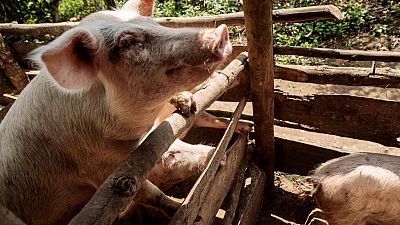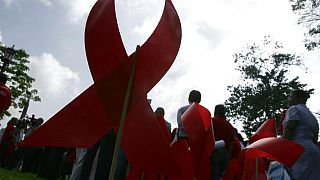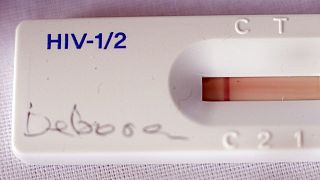Uganda
Uganda's National Drug Authority has admitted that in 2014, it knew that HIV medicine was being used to fatten up animals but did not inform the public.
The regulator's senior drugs inspector, Amos Atumanya, informed parliament that they became aware that anti-retroviral drugs were being given to pigs and chickens as a treatment.
Mr. Atumanya expressed concern that consuming these drugs in food could be dangerous for humans. However, the National Drug Authority (NDA) later downplayed his comments.
According to an NDA spokesperson, if there was a health risk, they would have warned the public. They emphasized that their role is to regulate drugs, not food or animal feed.
A recent report from Makerere University found that over one-third of chicken and 50% of pork samples tested contained traces of anti-retroviral drugs. These meat samples were obtained from markets in Kampala and Lira.
When testifying before Uganda's House Committee on HIV/AIDS, Mr. Atumanya revealed that the NDA had investigated the use of anti-retrovirals (ARVs) in animal farming in 2014. However, although a report was generated, no public warning was issued to avoid harming the country's food exports. Mr. Atumanya explained, "So we were trying to find other means in which we could manage that situation."
One respondent to the Makerere University study mentioned that pigs given anti-retroviral drugs "grow faster and fatter and are sold off quickly." However, Mr. Atumanya cautioned that this practice could lead to serious problems for humans who consume such meat and become infected with HIV, as it may result in resistance to these ARVs.
Uganda has approximately 1.4 million people living with HIV/AIDS, according to the United Nations.
The NDA's 2014 report found that anti-retrovirals were primarily used to treat African swine fever, also known as Pig Ebola, which currently has no cure. The report also verified claims that ARVs were being used to treat Newcastle disease in chickens.
Following Mr. Atumanya's remarks, an NDA spokesperson defended the decision not to publicize their findings, reiterating that their responsibility is to regulate drugs, not food or animal feeds.
They assured the public that if there were any health threats related to these drugs, the NDA would promptly inform the public, as they always do. Additionally, the NDA stated that they had taken measures to prevent the misuse of drugs, leading to several arrests and prosecutions.














Go to video
2024: Deadliest year ever for aid workers amid global conflicts - UN says
01:40
Kenya cancels airport and energy deals with Adani group after the U.S. indicts the tycoon
Go to video
Fugitive Zambian MP Emmanuel Jay Banda arrested in Zimbabwe after three-month Manhunt
Go to video
Spain to offer residency and work permits to undocumented migrants
Go to video
Archbishop of Canterbury will end official duties in early January amid sex abuse scandal
Go to video
Congo opposition leaders call for protests against president's plan to change constitution